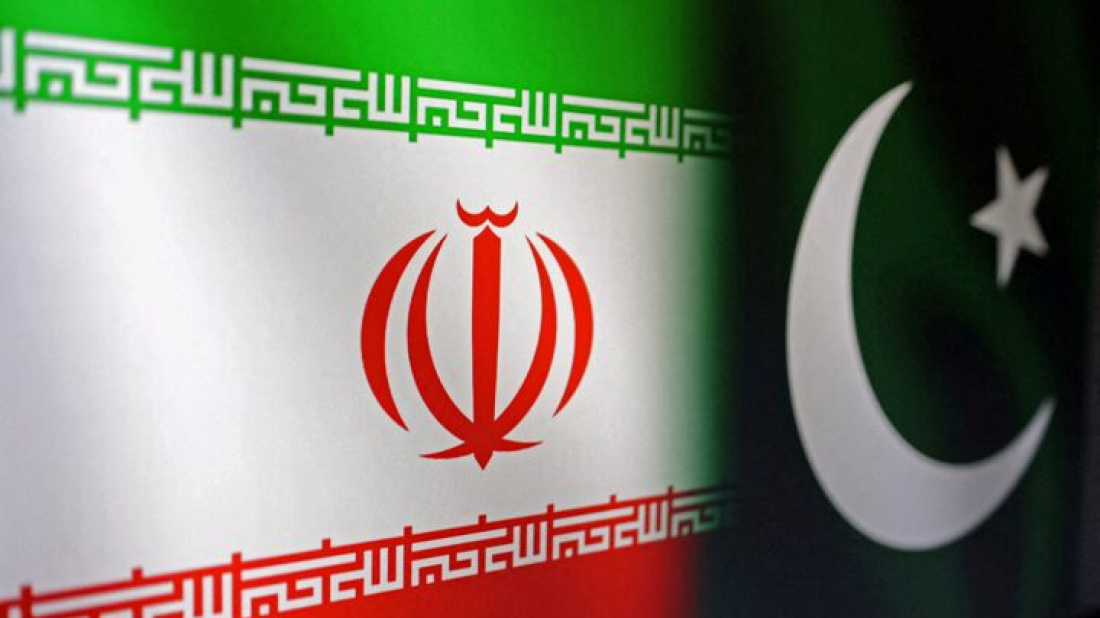Greenland temperatures surge in warmest January on record
Greenland registered its warmest January on record, sharpening concerns over how fast-rising Arctic temperatures are reshaping core parts of the islan...

Iran’s President Masoud Pezeshkian is due to start his two-day state visit to Pakistan on Saturday while the relations of the two neighboring countries have gained new significance in terms of regional and international developments.
In the wake of Pakistan’s rival India reassessing its ties with Russia, U.S. and West on one side, and the heightened tensions in the West Asia including the Iran-Israel war in June on the other, the statesmen in Islamabad and Tehran seem poised to reassess their ties beyond bilateral issues of trade or security concerns in Afghanistan.
According to the Political Advisor to Iranian President Mehdi Sanaei, President Pezeshkian’s program includes visit the tomb of the prominent politician and poet Allama Iqbal and meeting with Pakistani President, Prime Minister, and Chief of Army Staff of the Armed Forces as well as cultural and commercial elites.
In a post on his X account, Sanaei wrote: Relations between the two countries have political, economic, religious and cultural dimensions. The development of provincial and border cooperation and the promotion of exchanges from the current $3 billion are among the goals of the visit.
Pakistani Premier Shehbaz Sharif visited Iran last May in his second visit to Tehran in less than a year.
Tehran and Islamabad share a history of close relations, marked by frequent high-level visits between top officials focusing on bilateral ties, particularly in economic and commercial areas. They have also addressed regional security concerns and have shared interests in the Middle East and South Asia.
Iran was the first country to recognize independence of Pakistan in 1947, and their foreign ministers regularly exchange views on phone and at the regional and international events including the Organization of Islamic Countries, the Economic Cooperation Organization, and the Shanghai Cooperation Organization.
However, it appears that the India factor in Pakistan’s foreign policy plus the Israel factor in Iran’s foreign policy have gained further significance following the recent developments in the South and West Asia bringing Islamabad and Tehran closer together.
The pivot to Israel by India, the flag-bearer of Non-Aligned Movement and a country which once heralded the Palestinian cause of an independent state, has not missed the eyes of Tehran. Also New Delhi’s procrastination in development of Iran’s southeast Chabahar port in Oman Sea and its continued harsh treatment of Muslims have made politicians in Tehran to doubt their traditionally friendly ties with India.
At the same time, the 12-day Israel-U.S. invasion of Iran and their airstrikes on Iran’s nuclear sites under UN safeguards has rang the alarms in nuclear-armed Pakistan. Islamabad which does not have diplomatic ties with Tel Aviv because of Islamic values and its close ties with New Delhi, condemned the Israeli aggression on Iran as violation of a sovereign country’s territory.
In the meantime, Iran, thanks to its historically close ties with Pakistan and India, mediated a ceasefire between India and Pakistan last May after a deadly terrorist attack in the Indian-Administered Kashmir. However, the dispute over the divided region of Kashmir has overweighed similar reconciliation initiatives for the past seven decades.
As Iranian President Pezeshkian is scheduled to fly to Pakistan on Saturday, the ongoing developments are expected to require Tehran and Islamabad also exchange views on revisiting their 78 years of ties beyond the current bilateral issues.
Cuba’s Deputy Foreign Minister Carlos Fernández de Cossío has denied that Havana and Washington have entered formal negotiations, countering recent assertions by U.S. President Donald Trump, while saying the island is open to dialogue under certain conditions.
Talks with the U.S. should be pursued to secure national interests as long as "threats and unreasonable expectations" are avoided, President Masoud Pezeshkian posted on X on Tuesday (3 February).
Mexico said it will stop sending oil to Cuba as U.S. President Donald Trump ramped up pressure on the Caribbean nation.
Elon Musk’s rocket company SpaceX has acquired his artificial intelligence firm xAI, as the billionaire moves to bring more of his technology businesses under one structure.
Ukrainian President Volodymyr Zelenskyy accused Russia on Tuesday (3 February) of exploiting a U.S.-backed energy ceasefire to stockpile weapons and launch large-scale drone and missile attacks on Ukraine ahead of peace talks.
Ryan Routh, the man accused of attempting to assassinate Donald Trump on a Florida golf course weeks before the 2024 U.S. election, was sentenced to life in prison on Wednesday by a federal judge in Fort Pierce.
Milan prosecutors have placed an elderly Italian man under investigation over allegations that foreigners paid to shoot at civilians during the 1990s siege of Sarajevo, sources with direct knowledge of the case said on Wednesday.
Ryan Wesley Routh has been sentenced to life in prison for attempting to assassinate President Donald Trump at one of his golf courses in Florida in 2024, after a federal judge rejected his request for leniency.
Peter Mandelson has been one of the most influential and controversial figures in British politics but disclosures about his past relationships and conduct in government have triggered a political crisis in the UK and raising questions internationally. But who is he and why is he in the headlines?
National teams competing at Milano Cortina 2026 are unveiling distinct fashion identities, with designers from Lululemon to Armani and Moncler introducing ceremonial and technical uniforms that blend cultural heritage, national colours and modern winter-performance design.
You can download the AnewZ application from Play Store and the App Store.

What is your opinion on this topic?
Leave the first comment